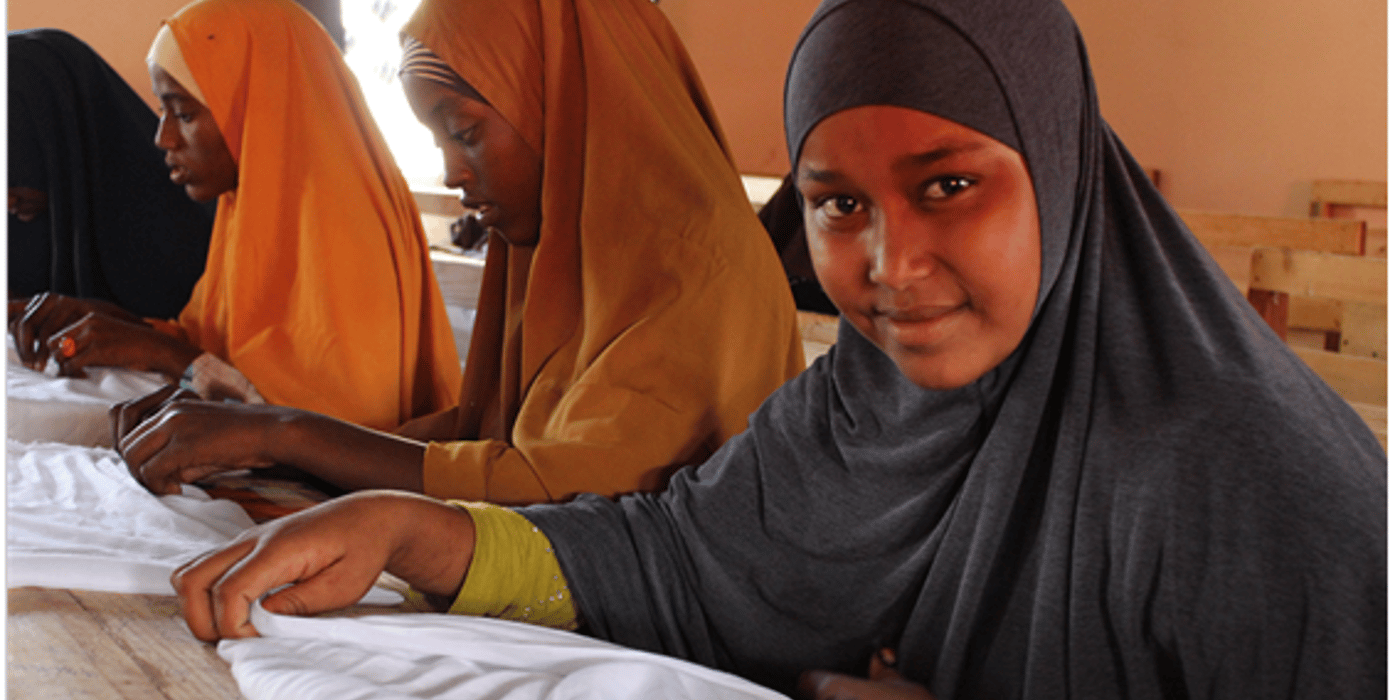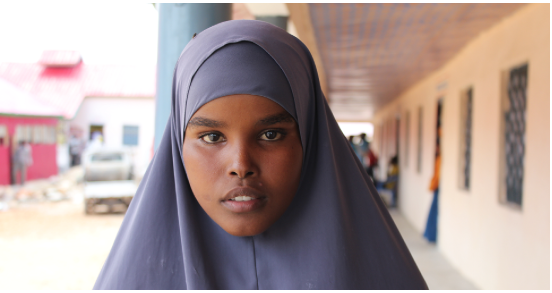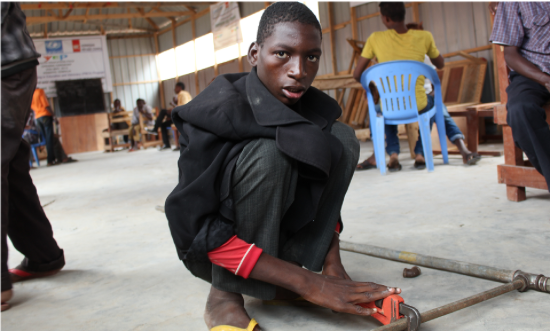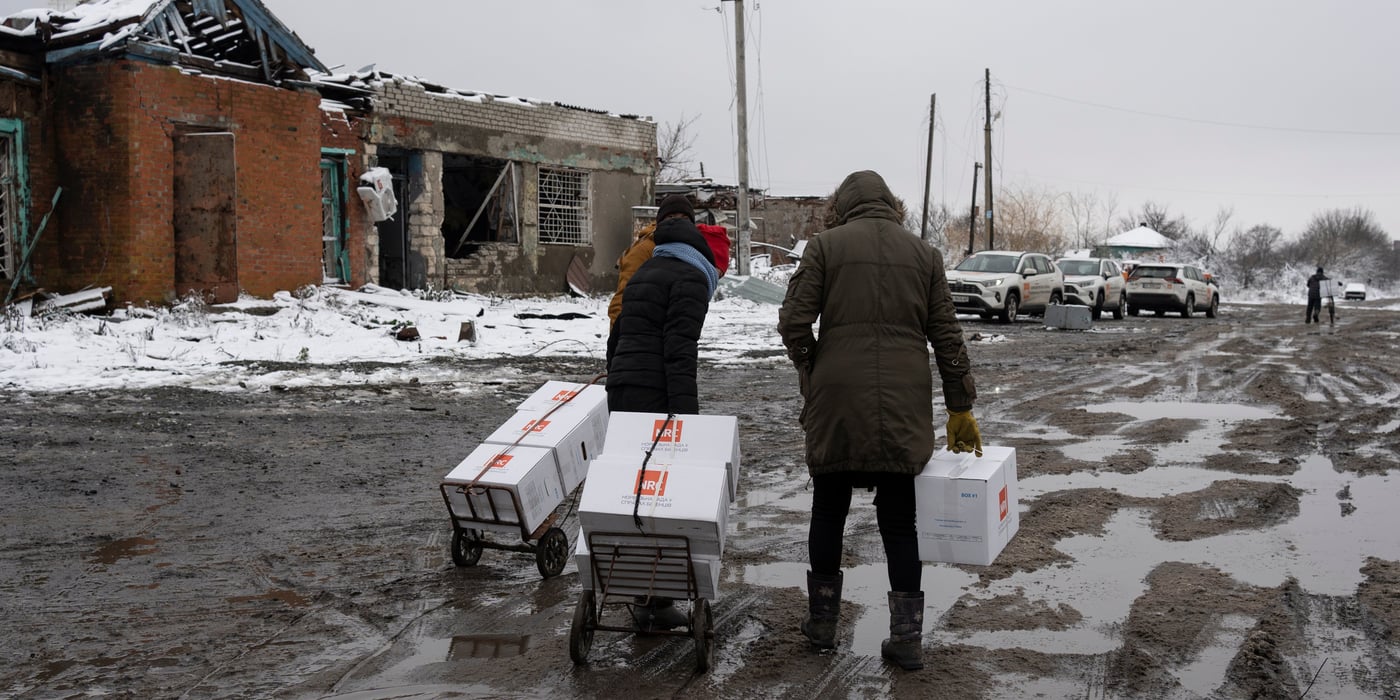
Vocational education opportunities for young people in Somalia are particularly scarce, a situation that led NRC in 2014 to establish a Youth Education Pack (YEP) centre in Kismayu. The curriculum promotes numeracy and literacy as well as seven different vocational courses, namely beautification, fishing, carpentry, plumbing, tailoring, electricity, and cooking. These skills are adapted to the local economy and by the end of the training, each student is granted a startup tool kit to facilitate speedy integration into the market.
“This training centre is targeting young, poor and vulnerable learners who have had little or no access to education due to the unforgiving conditions that they have experienced” says Mr. Farah Shukri Ahmed, NRC’s education coordinator in South Central Somalia.
The YEP Centre can accommodate more than 500 students and includes modern hygiene and sanitation facilities, a kitchen, and a multipurpose hall for meetings. Its opening marks a milestone in the region, being the only public learning institution.
“NRC is committed to continually enhancing the learning environment in public schools, by improving the quality, affordability and accessibility of education to facilitate self-reliance and resilient youths who can in turn contribute to long-term solutions in our community” says Mohamed Abdullahi, NRC’S Head of Sub-Office in Jubba’s area.
200 students started the curriculum in September 2014 and with support from the Building Resilient Communities in Somalia (BRCiS) Consortium, new infrastructure was completed on a piece of land donated by the local government. BRCiS is a participatory inter-agency programme supporting 98 communities across Somalia by addressing their vulnerabilities at different levels, and particularly by diversifying livelihood opportunities.
Cultural set-backs
“The new building is beautiful and conducive for learning, free from stress. It has brought us happiness, I know future generations like my young brothers and sisters will also find it a good place to learn!” says 16 years old Amina. She has completed a training programme and is hoping that she will soon be able to start working as a way to help her mother.

Amina has completed a training programme and has acquired skills in henna artistry. Photo: Abdalla Hashi/NRC
“I come from a humble family; my father is an old man. As many men in the camp, he spends most of his time under the shade of our house reciting the Holy Quran or discussing with his peers. We all depend on my mother’s hard earned income from daily labor. I did not have the chance to attend school. All the schools in Kismayo charge high fees between 10 and 15 US Dollars. This has distanced us from the thought of going to school.”
Due to cultural considerations, it is often difficult for parents to keep their first-born daughters in school due to the marriage pressures: “At the age of 16, I am aware that my father considers me mature enough to get married. Sitting in classes for 8 hours a day is for me a good way to escape early marriage. I hope that my mother can persuade my father to see that I am still too young for marriage,” says Amina.
Bilal is another student of the YEP centre where he studies plumbing. He started working at a very young age, helping his mother earning some money to feed the family. Sacrificing his earnings for a year to pursue plumbing did not go down well, but luckily the meals provided at the centre helps to cushion this gap.

Bilal working on a water distribution system. Photo: Abdalla Hashi/NRC
“I chose plumbing because plumbing skills are scarce in the market yet there is a big demand arising from modern building that are coming up. My parents are aging and I am lucky if I can face the challenges that the future hold armed with my new skills.”
The city of Kismayo, on the southern Somali coast, is gradually coming back to life after years under the control of militia groups. With a bustling seaport, the city is the economic epicenter of Southern Somalia and now counts more than 329,800 inhabitants. Most residents originate from rural areas and have resettled in Kismayo to escape from conflict. However, the city is facing a number of challenges due to the lack of infrastructures and the extreme poverty of a large part of its population.



